Blog | Just Transition
December 13, 2023
January 02, 2025 | Nadia Gallimore
On December 4-5, 2024, the Clean Energy Business Network (CEBN) participated in the Community Energy Innovation (CEI) Summit, which was hosted by the U.S. Department of Energy (DOE) in Chicago, IL. Taking place at the University of Illinois Chicago (UIC)—a federally recognized Hispanic- and Minority-Serving Institution—the Summit showcased 19 teams from the CEI Prize’s Clean Energy and Manufacturing Ecosystem Tracks, along with other organizations working to support innovation, entrepreneurship, capacity building, and economic development in communities historically underrepresented in clean energy funding. This event was made possible, in part, through sponsorship by E2, the Clean Energy for America Education Fund, Climate Power, and Invenergy.
As a Power Connector on the Community Energy Innovation Prize, CEBN supported planning for the Summit, building off our previous support for the Collegiate Track Summit that took place in Washington, DC in June.
For further information, view the full slide deck for the event and read DOE’s announcement about the winning Clean Energy and Manufacturing Ecosystem Track teams.
The opening of the Summit was marked by Lupe Villatoro, Integrated Strategies Office Senior Advisor in DOE’s Office of Energy Efficiency and Renewable Energy (EERE), who warmly greeted teams before their presentations, creating an atmosphere of anticipation and excitement. Andy Mitchell, Assistant Vice Chancellor and Director of Sustainability at UIC, discussed his role at the university and highlighted their efforts in promoting sustainability and clean energy on campus. Following Mitchell, Diana Bauer, Deputy Director of EERE’s Advanced Materials and Manufacturing Technologies Office, and Susan Hamm, Director of the Integrated Strategies Office, provided a brief overview of federal funding and community support opportunities to be addressed further on Day 2 of the Summit.
Of the 19 teams, 10 represented the Clean Energy Ecosystem Track, which advanced community-based projects with a wide range of clean energy initiatives, technologies, and areas of focus in underserved communities. The remaining nine teams were part of the Manufacturing Ecosystem Track, which aimed to support manufacturing innovation and economic development.
The teams from each track presented on their projects and then responded to questions from judges from the DOE and other federal entities. These presentations, in addition to the teams’ written IMPACT Phase submission materials, were used to determine final IMPACT Phase and GRAND PRIZE award amounts. As each team presented their achievements over the course of the prize, the audience listened intently and applauded their achievements and plans for the future.
To learn more about each team, explore their team posters.
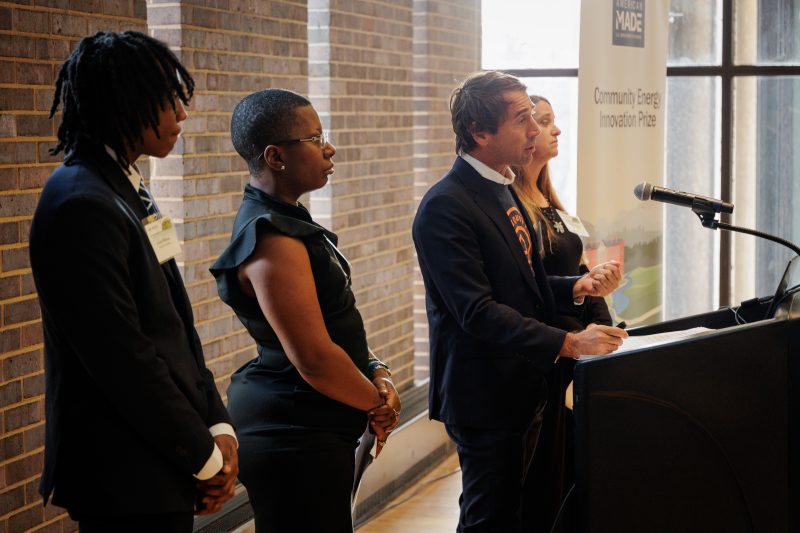
After the pitches, Summit participants and community members had the opportunity to join one of the three concurrent site tours that focused on community initiatives, manufacturing, or both. This experience allowed attendees to make real-life connections to the values of the Summit, as they visited innovative facilities dedicated to sustainability and supporting community members.
Special thanks to Cultivate Collective – Academy for Global Citizenship, Switched Source, and Rebuilding Exchange for showcasing their wonderful facilities with Summit attendees.
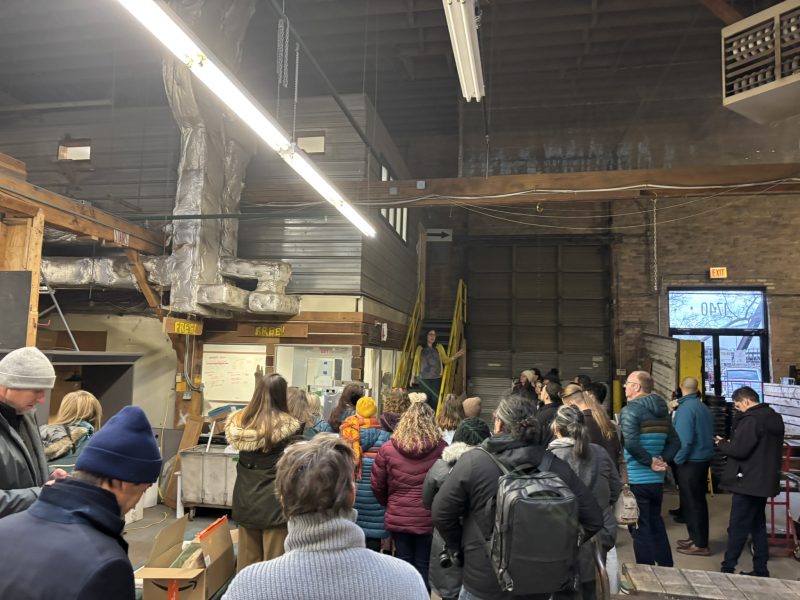
Below is more information about these sites:
The evening of the first day, Invenergy hosted a networking reception that welcomed Summit participants and community members. Utopia Hill, CEO of Reactivate, also presented an overview of how Invenergy and Reactivate (an Invenergy subsidiary) are bringing together complementary impact investment and sustainable energy expertise.
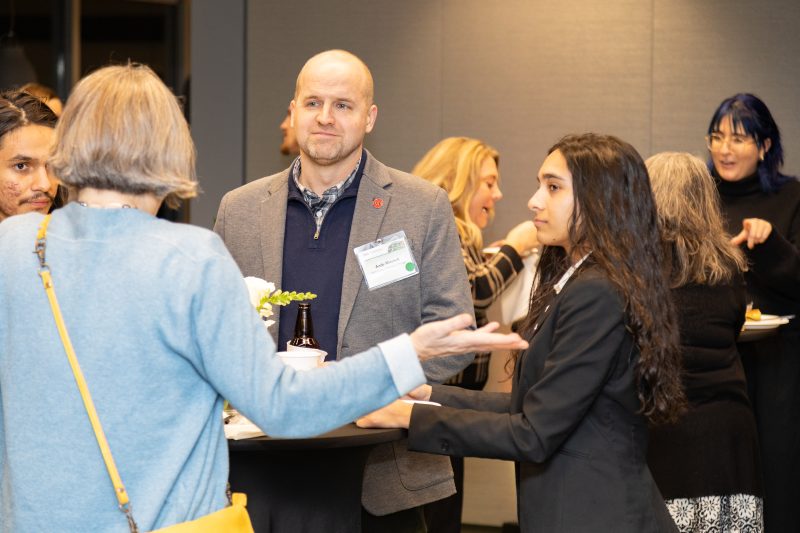
On the second day of the CEI Summit, the day began with remarks again from Lupe Villatoro, who set the stage for the programming for the day. This was followed by remarks from Micaela Preskill, Director of State Advocacy at Environmental Entrepreneurs (E2), one of the sponsors of the summit, who spoke about E2’s work supporting smart policies that are good for the economy and good for the environment.
To kick off the programming for the day, Susan Hamm, Director of EERE’s Integrated Strategies Office, spoke to attendees about various community energy funding opportunities. Audience members learned about DOE/EERE Programs, state programs, grants, and more. Susan Hamm’s presentation explained how to effectively locate and leverage these transformative resources.
Susan’s full presentation is available here and below are a few examples of EERE funding opportunities that she spoke about.
EERE PROGRAM EXAMPLES
For the Community-Based Initiatives Panel, EERE’s Lupe Villatoro and Diana Bauer served as moderators. Six panelists represented federal and non-federal entities with expertise in deploying clean energy and manufacturing initiatives in communities and accessing resources. The panelists discussed opportunities in the clean energy ecosystem, particularly those available at the federal level, and answered questions regarding the services they provide and how attendees can engage with their organizations.
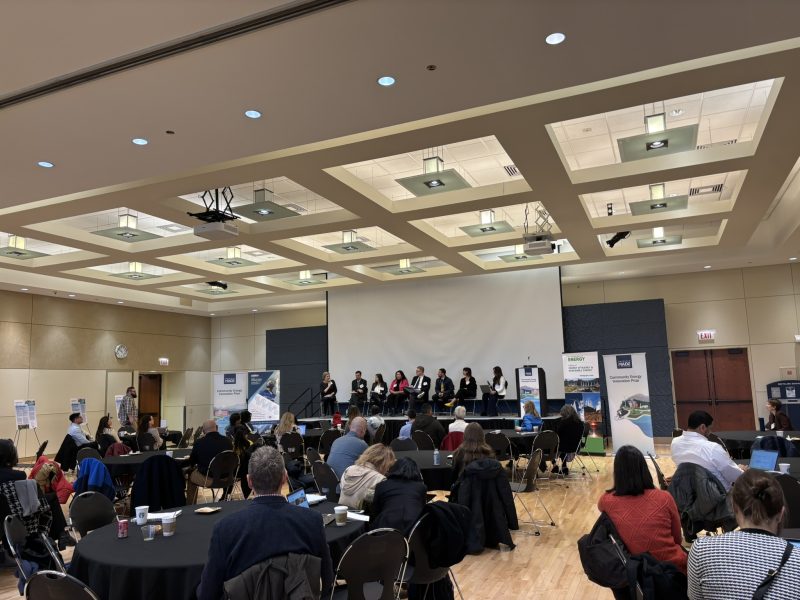
Panelists
• Chris Castro, Senior Advisor, Office of Energy Efficiency & Renewable Energy, DOE
• Summer Sandoval, Environmental Justice Federal Funding Lead, Urban Sustainability Directors
Network (USDN)
• Katherine Gajewski, Partner, City Scale
• Gregory Dierkers, Director of Stakeholder Engagement, Office of Clean Energy Deployment,
DOE
• Ben Vickery, Group Manager of Network Knowledge Management, Manufacturing Extension
Partnership, NIST
• Leanne Kaplan, Senior Partnerships and Program Manager, Communities First
Following the panel, the program transitioned to a speed networking session led by the panelists and other distinguished experts in an intimate setting, allowing them to learn more about essential resources and how to build on the success of their projects. Attendees were prompted to move to the next table every few minutes so that they could have a brief engagement with as many experts as possible.

After lunch, attendees participated in roundtables, where they discussed their successes, challenges, and growth opportunities with one another. Tables were labeled by topics of interest and included discussion questions, but participants were encouraged to let the conversation flow organically and freely share ideas, insights, and resources.
To conclude the event, Diana Bauer and Susan Hamm announced the winners in each respective track, presenting the final awards for the IMPACT Phase and GRAND PRIZE of the Community Energy Innovation Prize. The 19 winning teams and their award amounts are included below. Congrats to these impactful and inspiring teams!
Clean Energy Ecosystem Track
Manufacturing Ecosystem Track
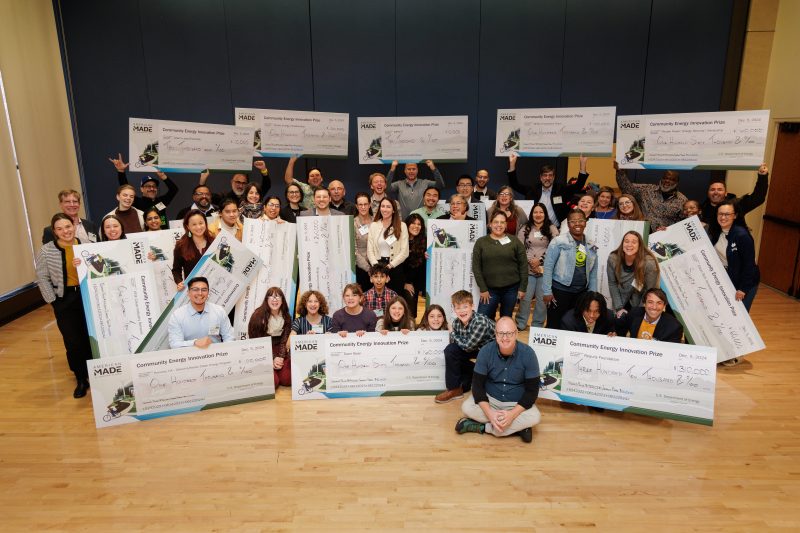
The second Community Energy Innovation Summit in Chicago signified the conclusion of this round of the CEI Prize, which showcased individuals committed to uplifting their communities through clean energy and manufacturing initiatives. Their accomplishments over the course of this prize are an inspiration to CEBN, and we are excited to see all the positive impact they will continue to make. Additionally, we look forward to seeing how the American-Made program continues to grow and support community organizations and small business across the U.S. looking to make a change in their communities.
Thanks to these sponsors for helping to make the Summit a great success! In addition to Invenergy, which hosted the reception, the Clean Energy for America Education Fund supported the CEI Summit as a Communication Sponsor and Climate Power and E2 also provided generous sponsorship to the Summit.
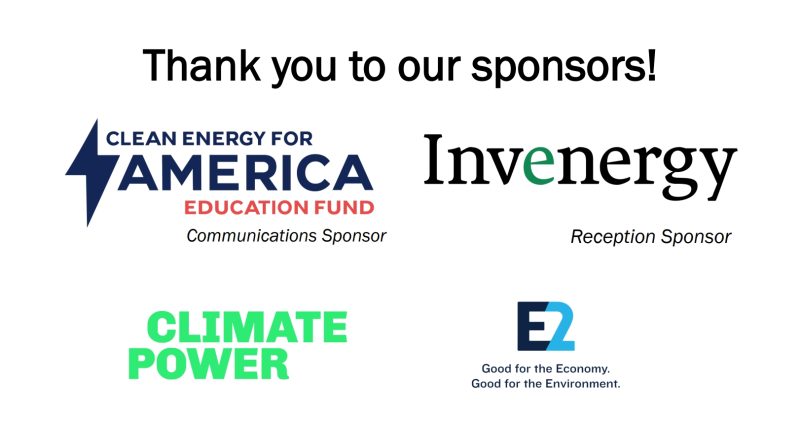
Photos by Bear & Camera Visuals. Find more images from the Summit here.